Speaker Biographies
Dr.Steven Running
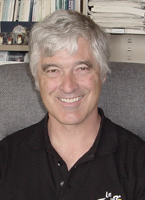
Dr. Steven W. Running has been with the University of Montana, Missoula since 1979, where he is a University Regents Professor of Ecology. His primary research interest is the development of global and regional ecosystem biogeochemical models integrating remote sensing with bioclimatology and terrestrial ecology. He is a Team Member for the NASA Earth Observing System, Moderate Resolution Imaging Spectroradiometer, and he is responsible for the EOS global terrestrial net primary production and evapotranspiration datasets. He has published over 240 scientific articles and two books.
Dr. Running has recently served on the standing Committee for Earth Studies of the National Research Council and on the federal Interagency Carbon Cycle Science Committee. He recently has served as a Co-Chair of the National Center for Atmospheric Research Community Climate System Model Land Working Group, a Member of the International Geosphere-Biosphere Program Executive Committee, and the World Climate Research Program, Global Terrestrial Observing System. He currently serves on the advisory NASA Earth Science Subcommittee, and the NOAA Science Advsiory Board Climate Working Group.
Dr. Running shared the Nobel Peace Prize in 2007 as a chapter Lead Author for the 4th Assessment of the Intergovernmental Panel on Climate Change. Dr. Running is an elected Fellow of the American Geophysical Union and is designated a Highly Cited Researcher by the Institute for Scientific Information. In the popular press, his essay in 2007, "The 5 Stages of Climate Grief" has been widely quoted.
Dr. Daniel Wildcat
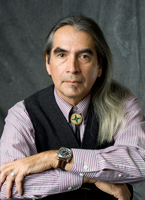
Dr. Daniel Wildcat, Ph.D., is a professor at Haskell Indian Nations University in Lawrence, Kansas, and an accomplished scholar who writes on indigenous knowledge, technology, environment, and education. He is also co-director of the Haskell Environmental Research Studies Center, which he founded with colleagues from the Center for Hazardous Substance Research at Kansas State University.
A Yuchi member of the Muscogee Nation of Oklahoma, Dr. Wildcat is the coauthor, with Vine Deloria, Jr., of Power and Place: Indian Education in America (Fulcrum, 2001), and coeditor, with Steve Pavlik, of Destroying Dogma: Vine Deloria, Jr., and His Influence on American Society (Fulcrum, 2006). Known for his commitment to environmental defense and cultural diversity, Dr. Wildcat has been honored by the Kansas City organization The Future Is Now with the Heart Peace Award. His newest book, Red Alert! Saving the Planet with Indigenous Knowledge, will be released later this year.
Dr. Nancy Maynard
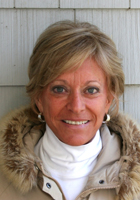
Dr. Nancy Maynard is a senior research scientist in the Cryospheric Sciences Branch with an interest in the use of remote sensing to observe changes (environment, climate, land use/cover) in the Arctic and their impacts on indigenous populations in the region. She is Project Manager for the NASA Tribal College & University Project (TCUP), which provides NASA education and research opportunities to the Nation's Tribal Colleges and Universities to increase the number of American Indian/Alaska Native undergraduates prepared for employment in science, technology, engineering and mathematics (STEM) related disciplines.
Dr. Maynard is a collaborator in a Norwegian-Russian indigenous reindeer-herder led International Polar Year (IPY) project called EALAT, "Arctic Vulnerability Study: Reindeer Pastoralism in a Changing Climate", to observe changes in the pasture state/quality and migration routes in response to the changes in climate, environment and development in the Eurasian Arctic.
Dr. Maynard is also a Lead Author for the Polar Regions chapter of the IPCC Fifth Assessment Report, Working Group 2 (Adaptation, Planning and Implementation). She has worked on remote sensing and health, remote sensing of ice edge biota, management of large interdisciplinary science programs at NASA HQ, and science policy at the White House Office of Science & Technology Policy (OSTP).
Dr. Margaret Hiza-Redsteer
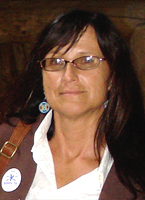
Dr. Margaret Hiza Redsteer is of Crow decent and currently a research scientist at the USGS Flagstaff Science Center where she is project chief of the "Navajo Land Use Planning Project", leading a team of researchers that conduct studies on tribal lands and adjacent communities. This interdisciplinary team looks at linkages between geology, climate and land use history, to assess climate change impacts to communities and the landscape they live on. This work provides a foundation for evaluating flood hazards and risks associated with dust and sand storms.
Recently, she has been selected by the IPCC working Group II to be lead author on Chapter 15 of the Fifth Assessment Report, on Adaptation, Planning and Implementation. Her education includes a B.S. in Geology with extended hydrogeology emphasis; an M.S. in sedimentology; and a Ph.D. in isotope and trace element geochemistry. She lived in the Joint Use Area of the Navajo Nation for ten years, in what is now Hopi Partitioned Lands.
Dr. Leroy Little Bear
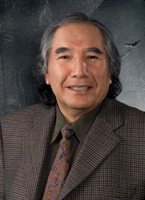
Dr. Leroy Little Bear, Professor Emeritus of Harvard University and Head of the SEED Graduate Institute, gives the spring 2011 installment of the Ortiz/Labriola Center Lecture with his presentation of "Native Science and Western Science: Possibilities for a Powerful Collaboration." Head of the SEED Graduate Institute and the former Director of the American Indian Program at Harvard University, he is Professor Emeritus of Native Studies at the University of Lethbridge where he was department chair for 25 years.
Little Bear has served as a legal and constitutional advisor to the Assembly of First Nations and has served on many committees, commissions, and boards dealing with First Nations issues. In 2003, Little Bear was awarded the prestigious National Aboriginal Achievement Award for Education, the highest honor bestowed by Canada's First Nations community. In 2006, he was award an honorary doctorate by the University of Lethbridge. He has written several articles and co-edited three books including "Pathways to Self-Determination: Canadian Indians and the Canadian State" (1984), "Quest for Justice: Aboriginal Peoples and Aboriginal Rights" (1985), and "Governments in Conflict and Indian Nations in Canada" (1988).
He is a contributor to "Reclaiming Indigenous Voice and Vision" (UBC Press, 2000). The Ortiz/Labriola Center speaker series addresses topics and issues across disciplines in the arts, humanities, sciences, and politics. Underscoring Indigenous American experiences and perspectives, this series seeks to create and celebrate knowledge that evolves from an Indigenous worldview that is inclusive and that is applicable to all walks of life. Little Bear is a member of the Blood Tribe of the Blackfoot Confederacy (Canada).
Elizabeth Kronk, J.D.
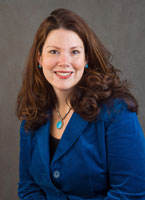
Professor Elizabeth Kronk is a citizen of the Sault Ste. Marie Tribe of Chippewa Indians of Michigan and is an Assistant Professor of Law at The University of Montana School of Law. Professor Kronk teaches Civil Procedure I and courses in Environmental and Indian law, including Introduction to Environmental Law, Environmental Law II, American Indian Natural Resource Law, The Law of Climate Change, Wildlife Law, Tribal Court Jurisdiction and Indian Gaming. During the summer session, she teaches Tribal Criminal Law and Procedure as part of the University's Summer Indian Law Program. She has also taught federal Indian policy and a seminar addressing contemporary issues in Indian Country, as well as Marine Environmental Law at Xiamen University in Xiamen, China. In 2010, Professor Kronk was selected to serve as an Environmental Justice Young Fellow through the Woodrow Wilson International Center for Scholars and U.S.–China Partnership for Environmental Law at Vermont Law School. In addition to teaching, Professor Kronk also currently serves as Chief Judge for the Sault Ste. Marie Tribe of Chippewa Indians appellate court in Michigan.
Before joining the faculty at The University of Montana School of Law, Professor Kronk practiced environmental, Indian, and energy law as an associate in the Washington, D.C., offices of Latham & Watkins LLP and Troutman Sanders LLP. While in Washington, D.C., she also served as President of the Native American Bar Association of the District of Columbia. Professor Kronk currently serves as Chair of the Federal Bar Association (FBA) Indian Law Section. In 2010, Professor Kronk received the FBA Indian Law Section's Outstanding Service Award. Professor Kronk also serves on the executive board of Michigan Indian Legal Services and Missoula YWCA. Professor Kronk graduated from Cornell University with a Bachelor of Science in Communication. She received her law degree from the University of Michigan Law School, where she also served on the Michigan Law Review. Professor Kronk was one of three University of Michigan School of Law alumni to be spotlighted for their work in Indian Country. Professor Kronk is a member of the District of Columbia, State of Michigan and State of Montana bar associations. She is also admitted to practice in the U.S. District Court for the District of Montana.